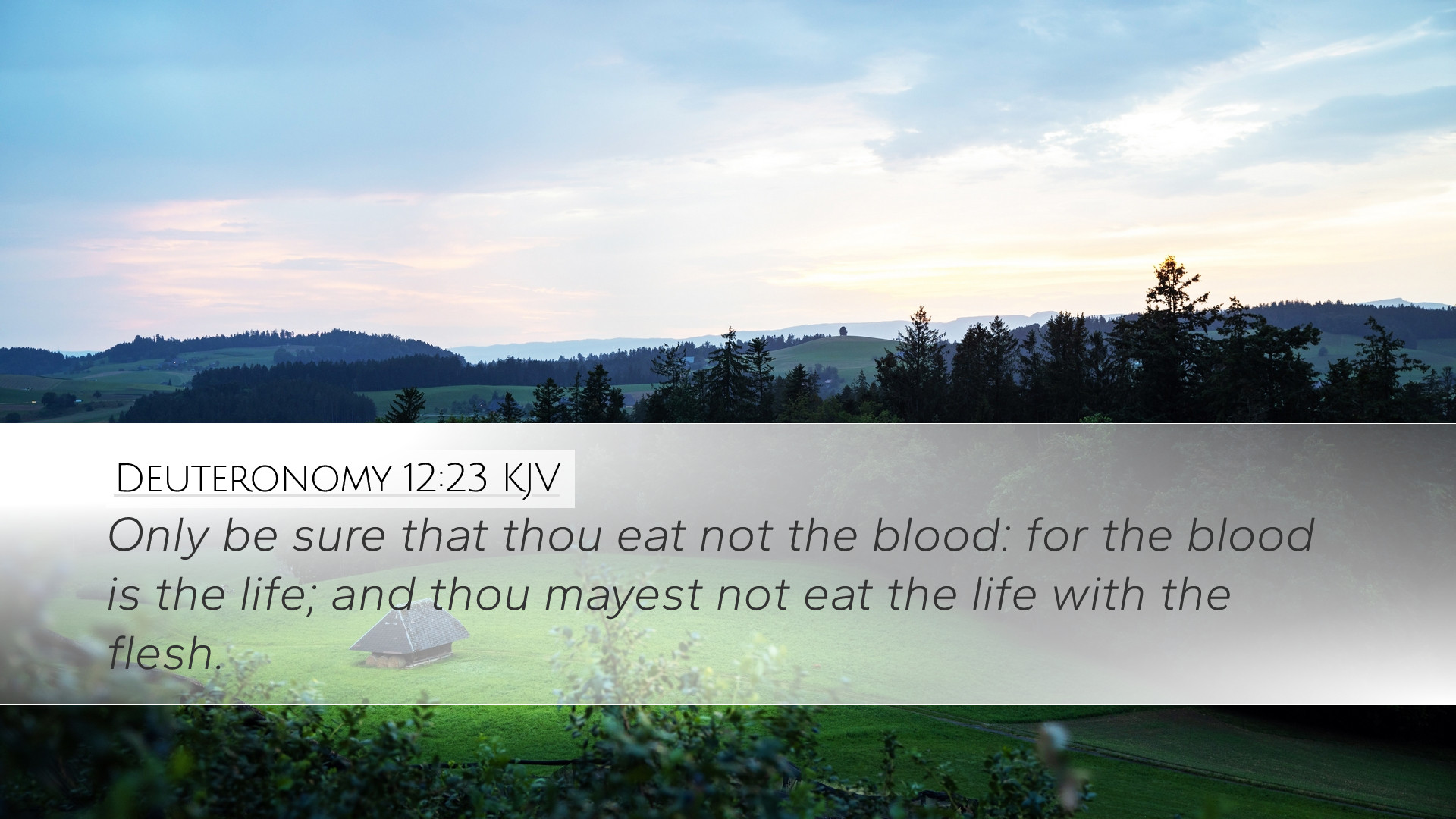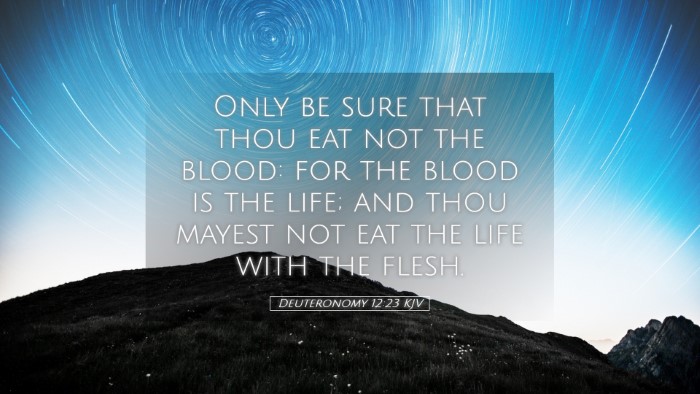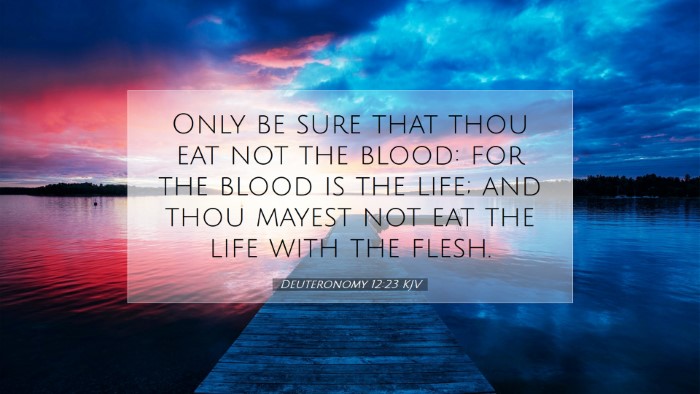Commentary on Deuteronomy 12:23
Deuteronomy 12:23 states, "Only be sure that thou eat not the blood: for the blood is the life; and thou mayest not eat the life with the flesh." This verse emphasizes a critical aspect of the Israelite dietary laws that intertwines moral, spiritual, and health considerations.
Importance of Blood in the Hebrew Context
Blood is frequently depicted in Scripture as possessing life-giving attributes. As noted by Matthew Henry, blood is not only vital for physical life but also serves as a significant symbol for spiritual life and atonement. The sacredness of blood is rooted in the belief that it is the 'life' of the flesh, thereby making its consumption an act that could spiritually and physically contaminate the person who consumes it.
Theological Implications
Albert Barnes draws attention to the theological implications of this command. The prohibition against consuming blood suggests a respect for God's created order and the sanctity of life. In the Israelite tradition, blood became a powerful symbol of covenant and atonement, particularly significant in the sacrificial system, where blood signifies the life offered for the cleansing of sin.
Historical Context
Adam Clarke provides insights into the historical and cultural context surrounding this command. In ancient Near Eastern practices, the consumption of blood was often associated with pagan rituals aimed at seeking favors from local deities. The Israelites were called to maintain their distinct identity, and the abstention from blood delineated them from surrounding nations and their practices.
Emphasis on Life and Holiness
Deuteronomy 12:23 underscores the holiness that surrounding the blood. Matthew Henry comments that this command adheres to the wider biblical principle that emphasizes the seriousness of sin and the consequent need for atonement. The act of consuming blood was not just about dietary practice; it was about recognizing that life and its means of sustenance come from God and must be treated with the utmost reverence.
Spiritual Significance
The prohibition also serves as a typological precursor to New Testament themes. The blood of Christ is central to Christian faith and serves as a new covenant that fulfills and transforms the old laws. By avoiding the blood of animals, the Israelites prefigured a greater understanding of life—one that would come to be symbolized in the sacrifice of Jesus.
Practical Considerations for Israel
The practical application of this command in Israel's life was significant. Albert Barnes points out that the Israelites were to treat the blood as holy, which informed their interactions with animals for food. This regulation not only served to promote health by discouraging unclean practices but also reinforced the importance of obedience to God’s laws, fostering a community that revered His holiness.
Community and Worship
In terms of community, adherence to this commandment was a collective aspect of worship and identity. Adam Clarke emphasizes that these dietary laws were not merely personal but communal, shaping the practices and identity of the entire nation. The act of abstaining from blood during communal meals was a sign of unity in faith and adherence to God’s expectations.
Conclusion
In analyzing Deuteronomy 12:23, it becomes clear that the prohibition against consuming blood goes far beyond dietary regulations; it reflects profound spiritual truths regarding life, holiness, and atonement. For pastors, students, and theologians, this command serves as a reminder of the reverence due to the life-giving nature of blood and its pivotal role in the theology of sacrifice, both in the Old and New Testament contexts. Observing these insights can greatly enhance one's understanding of the sacredness of life as viewed through the lens of Scripture.


